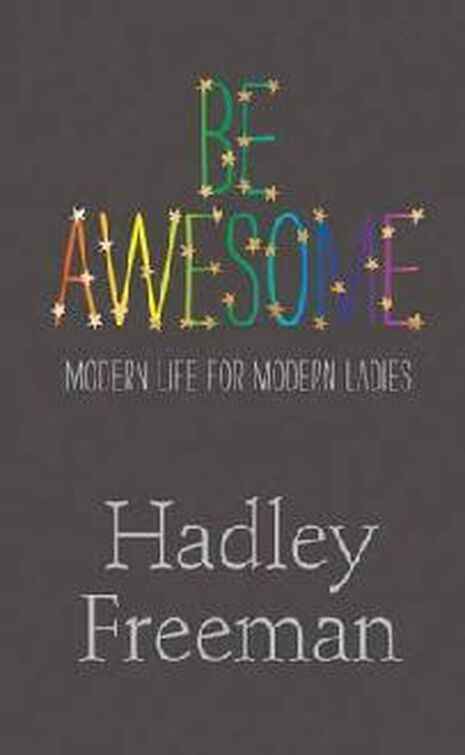Literature: Be Awesome: Modern Life for Modern Ladies
Josie Bowerman wishes Hadley Freeman wouldn’t feel the need, at times, to obscure the positive message that lies at the heart of this work.

Is ‘awesome’ something active, something one becomes? Is it an imperative for modern life? In this new piece of feminist writing, emerging in the wake of the similarly instructive-sounding How To Be A Woman, Freeman doesn’t seem to be quite sure. Instead she presents a series of lists, addenda, and articles, which one can only hope will eventually reveal the secrets of awesomeness. Yet achieving this awesomeness runs into some problems, not least that it seems a rather restricted substance.
What is immediately apparent is that Freeman appears to have a very distinct idea of what constitutes a ‘modern lady'; yet like the nebulous ‘awesome’, this idea is never defined. It is only ever implied through references to a specific lifestyle involving a certain fashion and pop-culture literateness, a certain type career and financial stability and, at several points, a certain familiarity with 80s teen movies. This seems problematic: surely there have never been more ways to exist as a ‘lady’? Yet, if a reader fails to meet Freeman’s implicit ideal, are they excluded from awesomeness? This is a question which consistently arises in Freeman’s writing, yet never feels properly addressed.
Be Awesome covers what might be described as the issues of ‘fun feminism’: how to cope when friends have babies and insist on over-sharing details of the birth; how to avoid being brainwashed by the Daily Mail. These topics are covered in a friendly, confidential tone; Freeman aims to capture the feeling of drinking cheap wine whilst discussing feminism with a gang of close friends. There’s nothing wrong in this, but at times Freeman’s wit and humour, which come across to full and enjoyable effect in some parts of the book, seems strained and anxious. A section on sex tips, for example, is almost cringingly try-hard, Freeman desperately playing for laughs, perhaps even scared of making a strong point. Moreover, the issues covered seem to be the concerns of a demographic that in fact, as women, already have many privileges. There is no mention of struggling to close the pay gap, of speaking up against sex discrimination, or the very real threats of domestic and sexual violence. In all, it feels a lot like ‘Feminism- An Introduction for Ladies Who Don’t Have to Worry About the Really Bad Stuff’.
It’s true that feminism as a label often struggles under many misapprehensions. So in a way it is understandable why Freeman plays it safe, trying to introduce readers to feminism by giving it a friendly face. This is not to be criticised, and she does an admirable job of making her feminism palatable. Nevertheless, it sits oddly at times with more powerful and impassioned sections of writing, such as a measured an insightful piece about eating disorders. In trying so hard to please, Freeman dilutes her true opinions.
In her attempts to present a modern and fashionable face for feminism, Freeman seems to silence her own voice. A woman keeping her opinions quiet in order not to offend seems very far from awesome. Awesome doesn’t have to be something to achieve; Freeman could always access the awesomeness that’s already within her, and express the views that this gives her the strength to form. Given Freeman’s tendency to a likeable and chatty style, there’s no reason this should be intimidating. That seems the sort of thing a modern lady would do.
 Comment / Anti-trans societies won’t make women safer14 November 2025
Comment / Anti-trans societies won’t make women safer14 November 2025 News / Controversial women’s society receives over £13,000 in donations14 November 2025
News / Controversial women’s society receives over £13,000 in donations14 November 2025 News / John’s rakes in £110k in movie moolah14 November 2025
News / John’s rakes in £110k in movie moolah14 November 2025 Fashion / You smell really boring 13 November 2025
Fashion / You smell really boring 13 November 2025 Music / Three underated evensongs you need to visit14 November 2025
Music / Three underated evensongs you need to visit14 November 2025









